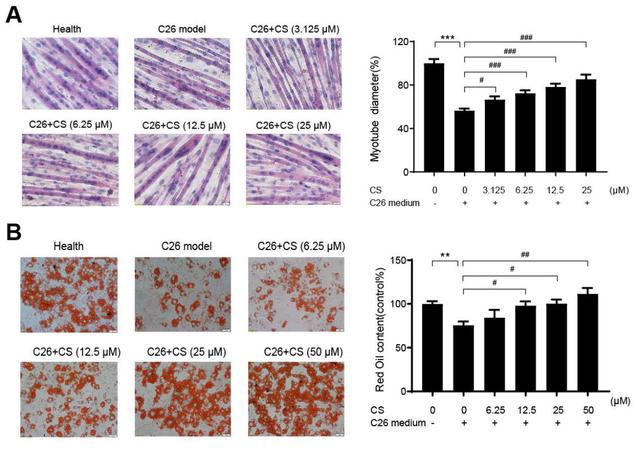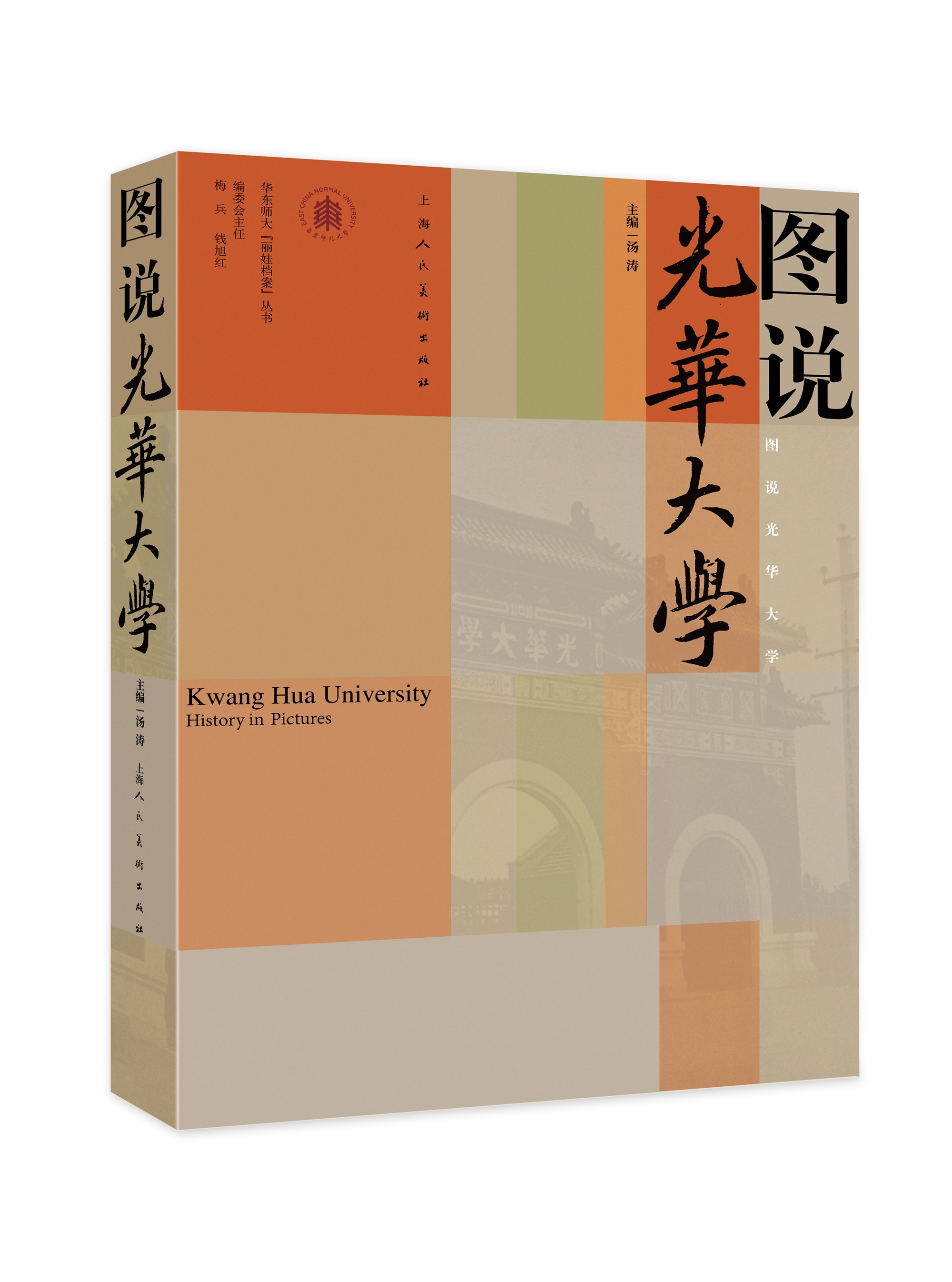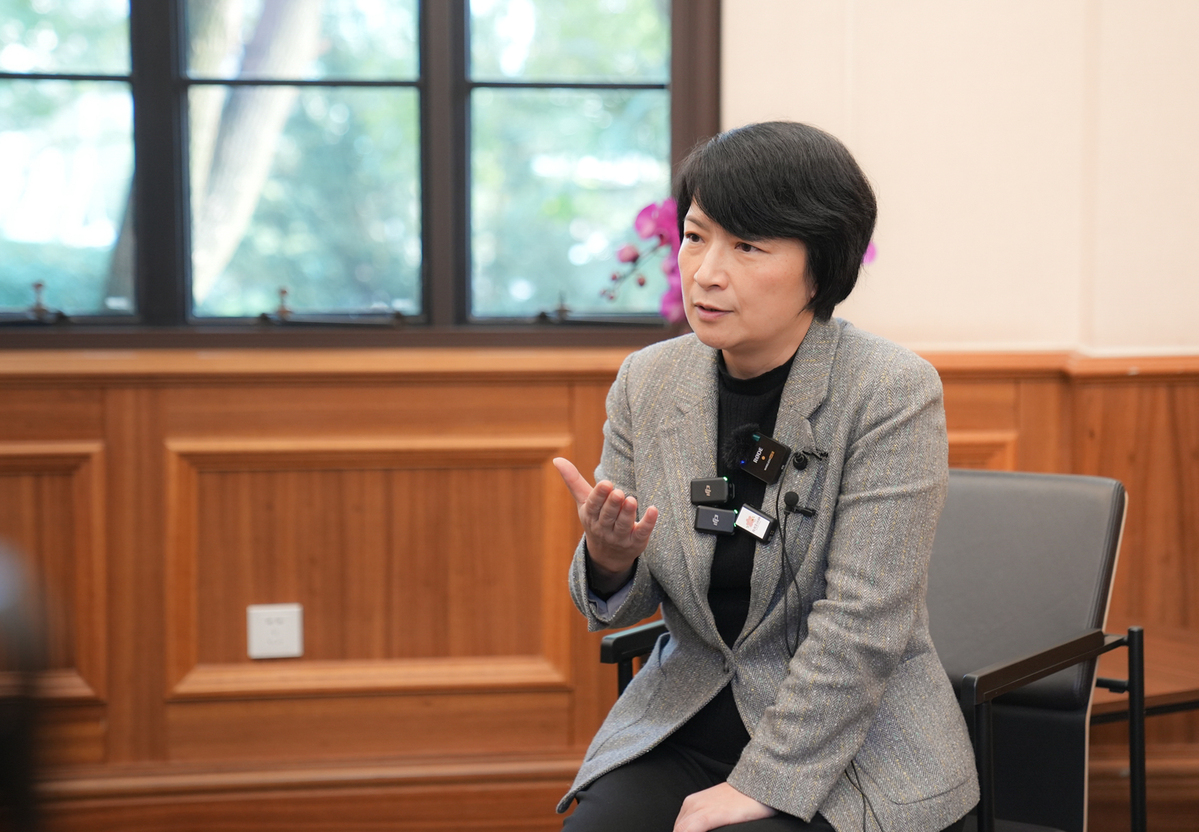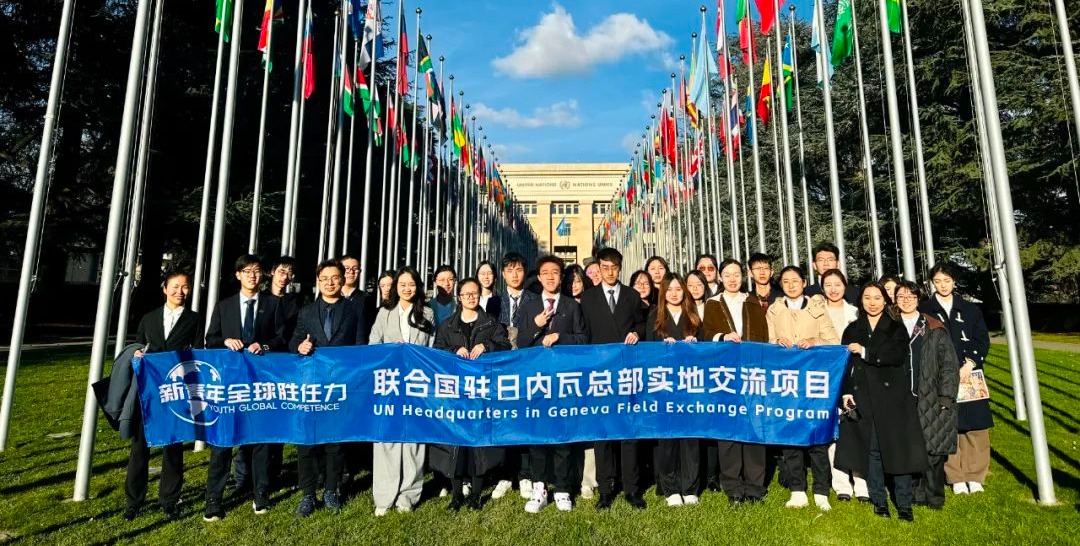Cancer cachexia, a major complication in patients with malignant tumors, is a wasting syndrome characterized by systemic metabolic disorders, progressive muscle and fat wasting, weight loss, and systematic progressive organ failure. The cancer cachexia occurs in as high as 50%-80% of patients with advanced tumors and is responsible for about 20% of death of the cancer patients. At present, there is still a lack of clinically effective treatments available, and thus it is of vital significance to develop new medications against cancer cachexia.
Based on their systematic research of cancer cachexia therapy, a research team led by Professor Xiongwen Zhang in Shanghai Engineering Research Center of Molecular Therapeutics and New Drug Development of School of Chemistry and Molecular Engineering of ECNU found that Carnosol (CS) and its analogs could alleviate the muscle atrophy and fat lipolysis caused by cancer cachexia effectively, with the relevant works published online in Journal of Cachexia, Sarcopenia and Muscle (2021, 10.1002/jcsm.12710).

Professor Xiongwen Zhang’s research team, which has long been engaged in research of cancer cachexia, screened and evaluated the effects and mechanisms of various small molecule compounds, traditional Chinese medicine extracts and their active components on cancer cachexia in recent years. They had found that pyrrolidine dithiocarbamate (PDTC) and SiBaoCongCao could relieve cancer cachexia effectively (Front. Pharmacol., 2017, 8: 915; RSC Adv,2019,9(30),17440-56).
In addition, the team designed and synthesized a series of novel selective antagonists of β3-adrenergic receptor (β3-AR) which could ameliorate cancer cachexia (Eur. J. Med. Chem., 2018, 150: 757.). The team also establish a cancer cachexia model with spleen deficiency syndrome (Patent CN201710860270.3) and discovered that Atractylenolide-I can improve the cancer cachexia symptoms of spleen deficiency syndromes (Acta Pharmacol. Sin., 2020, 41(2): 237).

Last but not least, the team also found that cancer-derived exosomes and their miRNAs secreted by colon tumor cells could stimulate apoptosis of mytotube cells by inhibiting Bcl-2 and thus induce skeletal muscle atrophy (Mol. Ther. Nucleic Acids, 2021, In press).
This study makes CS and its analogs the possible drug candidates for the clinical treatment of cancer cachexia. The related work has applied for three national invention patents (202010089693.1, 202010088733.0, 202010088747.2). Meanwhile,the mechanism study of the active compounds provides the basis for further drug development and clinical treatment.
Founded in 2006, the Shanghai Engineering Research Center of Molecular Therapeutics and New Drug Development has long been committed to developing key generic technologies in translational medicine and pharmaceutical research such as the treatment of cancer cachexia, reversal of drug-resistance in cancer chemotherapy, targeted anticancer therapy, cancer immunotherapy, antibody-drug conjugate, targeted drug delivery and other cutting-edge technologies. The center has been strongly supported by the university and the school since its establishment, and has made remarkable achievements in scientific research, including winning the excellence award during the evaluation by the Science and Technology Commission of Shanghai Municipality for two consecutive times.
Paper link:
https://onlinelibrary.wiley.com/doi/10.1002/jcsm.12710
Source: School of Chemistry and Molecular Engineering
Copy editor: Philip Nash
Editor: Yuan Yiwei


















